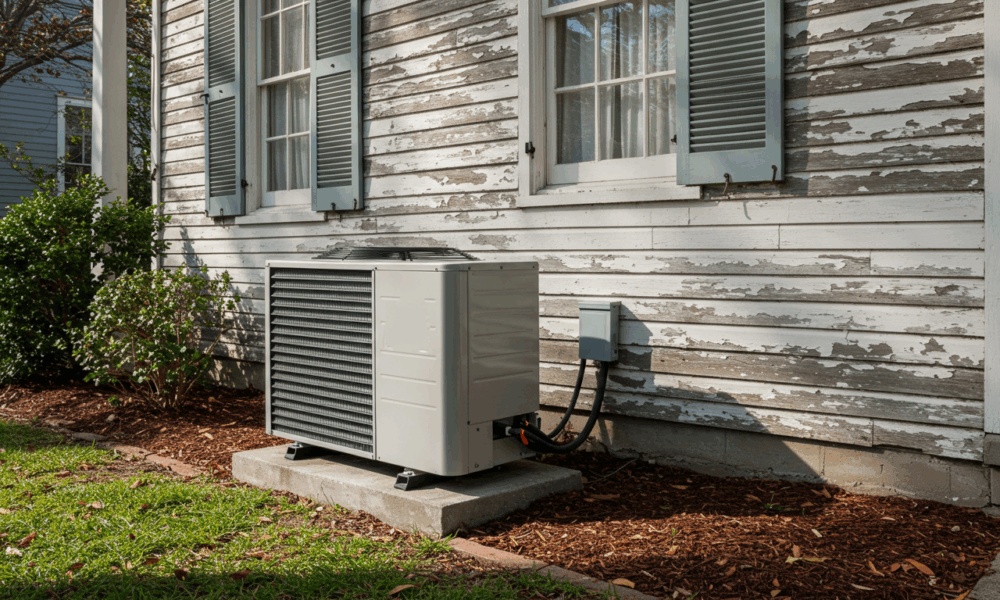Complete HVAC maintenance guide for New Orleans homeowners. Learn seasonal schedules, hurricane prep, and how professional service keeps your AC running efficiently.
Your HVAC system works harder in New Orleans than almost anywhere else in the country. Our long cooling season, extreme humidity, and unpredictable weather patterns put constant stress on heating and cooling equipment. Regular maintenance isn’t just recommended here—it’s essential for keeping your family comfortable and avoiding expensive emergency repairs when you need your system most.
Look, let’s be honest about living here: the humidity that makes 85 degrees feel like you’re swimming through soup, summer that basically runs from April straight through October, and hurricane season that keeps everyone on their toes. Your poor HVAC system is fighting battles that equipment in, say, Colorado never even dreams about.
We’ve been taking care of HVAC systems around New Orleans for over a decade now, and here’s what we’ve learned: maintenance here isn’t some nice-to-have thing you get around to eventually. It’s the difference between staying cool when it’s 95 degrees with a heat index of 110, and sweating it out while you wait three days for an emergency repair guy who’s already swamped with calls.
At Hagerman Services, we’ve been maintaining HVAC systems in the New Orleans area for over a decade. We understand that proper maintenance here isn’t just about efficiency—it’s about reliability when you absolutely cannot afford to lose cooling during our brutal summer months.
This comprehensive guide will walk you through everything you need to know about maintaining your HVAC system in our unique climate, including what you can handle yourself and when it’s time to call in the professionals.
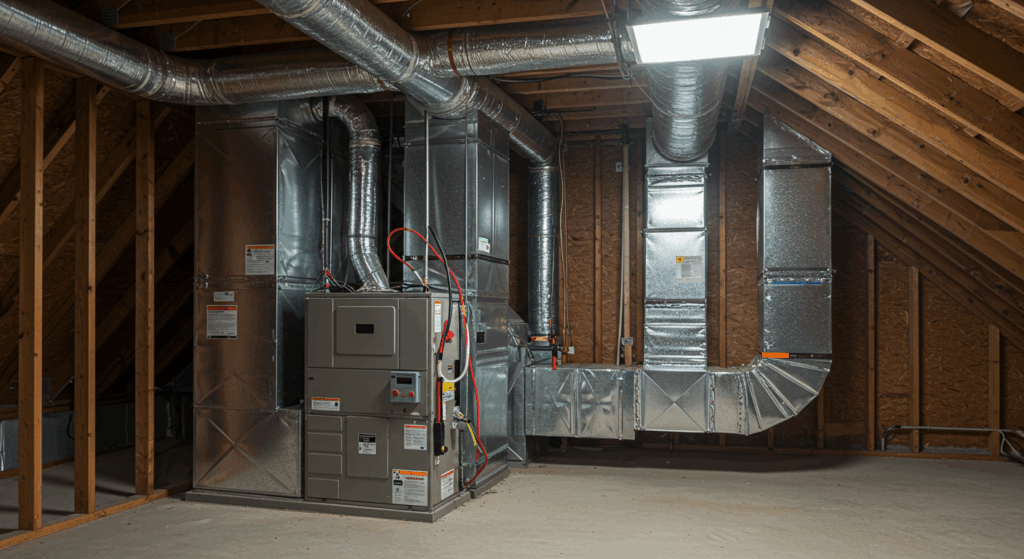
Why New Orleans HVAC Systems Need Special Care
Here’s the thing about New Orleans – your HVAC system is basically running a marathon in a sauna, all year long. Let me break down why that matters:
The humidity is relentless. We’re not talking about regular humidity here. This is the kind of thick, soupy air that makes your AC work overtime just trying to pull moisture out of the atmosphere. When your system can’t keep up with dehumidification, you get that gross, clammy feeling even when it’s technically “cool” inside.
Summer never really ends. While folks up north are giving their systems a break come October, we’re still cranking the AC well into November. That’s 8-9 months of heavy use, compared to maybe 4-5 months in other places.
Then there’s hurricane season. Every year, we’re dodging storms that can knock out power for days, flood equipment, or send debris flying into outdoor units. Your system needs to be ready to handle whatever Mother Nature throws at it – and bounce back afterward.
And don’t get me started on the dust and grime. Between construction, traffic, and just the general urban environment, filters get nasty fast here. Mix that with humidity, and you’ve got perfect conditions for all kinds of nastiness growing in your system.
Understanding these challenges helps explain why professional HVAC maintenance isn’t just recommended—it’s essential for system longevity and reliable operation when you need it most.
Spring Maintenance: Preparing for Summer Heat
Spring is when we get serious about your system, because summer in New Orleans doesn’t mess around. This is your “before the rush” moment – kind of like getting your car serviced before a cross-country road trip.
What we’re checking when we come out:
• Making sure your AC can actually handle what’s coming – We test refrigerant levels, check electrical connections, measure airflow. Boring technical stuff that prevents “oh crap, it’s 98 degrees and nothing’s happening when I turn on the AC” moments.
• Deep cleaning everything – Your coils are probably caked with months of dirt and debris. When they’re dirty, your system works twice as hard to do half the job. Not exactly efficient.
• Electrical safety check – Loose connections aren’t just inefficient, they’re dangerous. Our humidity loves to corrode electrical components, so we make sure everything’s tight and safe.
• Ductwork inspection – Even small leaks waste a ton of cooled air. We’re talking about checking for gaps, holes, or damage that’s literally blowing your money outside.
What you should handle at home:
- Change that filter! If you can’t remember when you last changed it, you’re already overdue. During heavy-use season, we’re talking monthly changes, not quarterly.
- Clear around your outdoor unit – That condenser needs space to breathe. Two feet minimum, and don’t let the landscaper blow grass clippings all over it.
- Test your thermostat – Make sure it’s reading temperatures accurately and responding when you adjust settings.
Professional spring maintenance typically identifies 3-4 potential issues per system that, if left unaddressed, could cause problems during peak summer operation. This preventive approach saves money and prevents uncomfortable situations when you need your AC most.
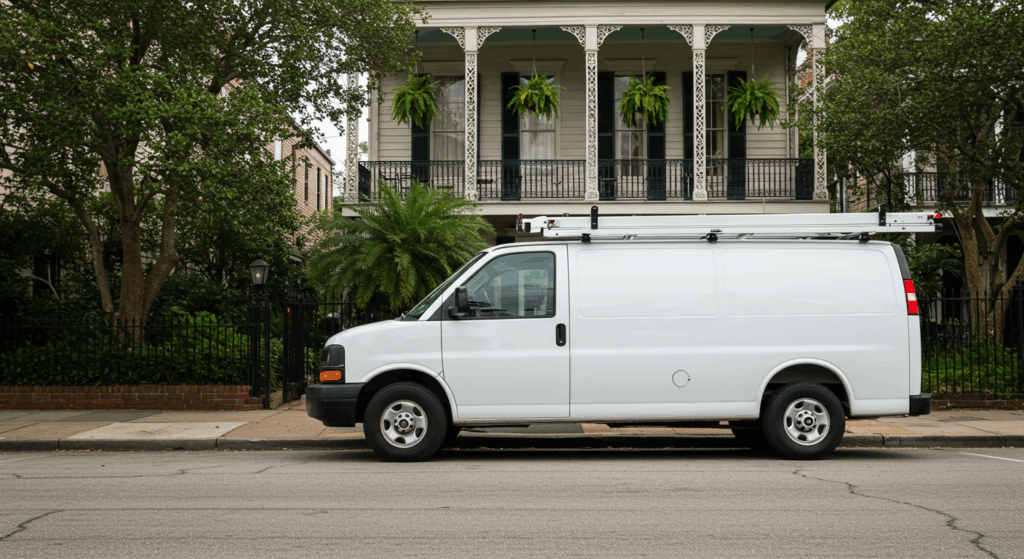
Summer Maintenance: Keeping Systems Running Strong
Now we’re in the thick of it. Your system is working harder than a Saints fan defending the team after a bad season. Here’s how to keep it from giving up on you:
The monthly stuff you’ve got to stay on top of:
→ Filters, filters, filters – Yeah, we’re being annoying about this, but a clogged filter in July is basically like trying to breathe through a wet towel. Change them monthly, no excuses.
→ Hose down that outdoor unit – Once a month, give those coils a gentle spray with the garden hose. All that dirt and pollen builds up fast in our environment.
→ Check your drain line – That little PVC pipe coming from your indoor unit? Make sure water’s flowing freely. A clogged drain means water backup, and water backup means expensive problems.
When you should call us:
Sometimes things happen that are beyond the “homeowner maintenance” category. If your system is:
- Running constantly but the house feels like a sauna
- Making sounds that definitely weren’t there before
- Blowing air that’s not actually cold
- Creating puddles where there shouldn’t be puddles
Don’t be a hero. Call for backup. Summer emergency calls are expensive, and nobody wants to be without AC during a heat advisory.
If you’re experiencing any of these issues, our AC repair specialists can quickly diagnose problems and recommend cost-effective solutions to restore your comfort and system reliability.
Fall Maintenance: Hurricane Recovery and Winter Prep
Fall in New Orleans means two things: figuring out what hurricane season did to your system, and getting ready for those random cold snaps that always catch everyone off guard.
Post-Hurricane Reality Check
Even if you didn’t take a direct hit, storms mess with HVAC systems in ways you might not notice right away:
• Storm damage isn’t always obvious – High winds shift outdoor units, loosen connections, or damage ductwork in ways that don’t show up until later
• Water damage can be sneaky – Even brief flooding can compromise electrical components that seem fine initially but fail weeks later
• Power surges are system killers – Lightning and power grid fluctuations during storms can fry components that won’t show problems immediately
Getting Ready for Winter (Yes, We Have Winter)
Look, we know New Orleans winter is mostly a joke compared to other places, but when it does get cold, you want your heating to work:
→ Test your heat pump before you need it – It works differently in heating mode than cooling, and problems don’t always show up until you switch modes
→ Check your backup heating – Those auxiliary heating elements need to kick in when temperatures drop below heat pump efficiency ranges
→ Carbon monoxide safety – Any time you’re running heating equipment, gas water heaters, or generators, CO safety becomes critical
Why Fall Maintenance Matters
Professional fall maintenance catches the stuff that summer’s heavy usage beats up. Things like worn belts, dirty coils, and electrical connections that got corroded during our humid summer. Better to find and fix these issues during mild weather than discover them during the first cold snap.
Winter Maintenance: Brief but Important
While New Orleans doesn’t experience harsh winters, the seasonal transition and occasional cold snaps require specific maintenance attention to ensure your system handles temperature variations properly.
Heating System Readiness
Heat pump performance verification ensures your system can efficiently provide heating when temperatures drop. Heat pumps work differently in heating mode, and components that function fine for cooling may have issues when reversed for heating operation.
Backup heating testing verifies that auxiliary heating elements work properly. When temperatures drop below heat pump efficiency ranges, backup heating becomes essential for maintaining comfort.
Carbon monoxide safety checks become crucial when any combustion heating equipment operates. Even if you primarily use electric heating, gas water heaters, fireplaces, or backup generators can create dangerous conditions if not properly maintained.
System Protection Tasks
Freeze protection preparation protects outdoor components during unexpected cold snaps. While rare, freezing temperatures can damage outdoor units, pipes, and condensate drains if not properly prepared.
Air quality maintenance addresses winter-specific issues like increased allergen circulation when windows stay closed and heating systems distribute dust that accumulated during low-use periods.
Energy efficiency optimization takes advantage of milder temperatures to reduce energy costs. Proper thermostat programming and system calibration can significantly reduce winter energy bills.
Planning for Next Season
Annual maintenance planning uses the quiet winter period to schedule spring maintenance before the busy season begins. Planning ahead ensures you get priority scheduling and avoid emergency situations when everyone needs service simultaneously.
System evaluation and upgrade planning provides time to assess whether your current system meets your needs or if improvements would benefit your comfort and costs. Winter is the ideal time to plan major upgrades without rushing decisions during emergency situations.
Professional winter maintenance visits often uncover small issues that can be resolved before they impact spring startup. This proactive approach prevents the frustrating situation of discovering problems when you first need cooling after months of minimal system use.
Professional vs. DIY Maintenance Tasks
DIY Tasks (Safe for Homeowners):
✓ Monthly filter changes – The single most important thing you can do. Mark your calendar, set phone reminders, whatever it takes
✓ Basic outdoor unit cleaning – Turn off power, remove debris, gentle hose-down from inside out. No pressure washers or harsh chemicals
✓ Thermostat maintenance – Replace batteries annually, learn your seasonal programming
✓ Keep vents clear – Remove register covers monthly, vacuum them and visible duct portions
Professional-Only Territory:
⚠️ Refrigerant work – Requires EPA certification and specialized equipment. Don’t even think about it.
⚠️ Electrical repairs – High-voltage systems can kill you. Seriously.
⚠️ Gas heating maintenance – Carbon monoxide risks aren’t worth DIY experimentation
⚠️ Internal component work – Sealed systems require proper tools and training
The Simple Rule: If you’re not 100% sure it’s safe, call a professional. Emergency room visits cost way more than service calls.
When to Call Professionals
Unusual sounds, smells, or performance indicate potential safety issues or impending failures that require immediate professional diagnosis. Don’t ignore warning signs hoping they’ll resolve themselves.
Annual comprehensive maintenance should be performed by qualified technicians who can identify and address problems you can’t safely or effectively handle yourself.
Pre-season tune-ups ensure your system is ready for peak demand periods when you can’t afford breakdowns or poor performance.
Our professional maintenance services combine the thoroughness of professional expertise with the convenience of scheduled service that fits your budget and calendar.
Signs Your System Needs Immediate Attention
Recognizing early warning signs can prevent minor issues from becoming major problems that leave your family without heating or cooling when you need it most. Some signs require immediate professional attention for safety reasons.
Emergency Warning Signs
Gas odors around any HVAC equipment require immediate action. Turn off gas supply if you can do so safely, evacuate the area, and call for emergency service. Natural gas leaks can cause explosions or carbon monoxide poisoning.
Electrical burning smells indicate potentially dangerous wiring problems. Turn off the system immediately and call for professional diagnosis. Electrical fires can start quickly and cause extensive damage.
Water leaks around indoor equipment can indicate drain blockages, refrigerant leaks, or heat exchanger problems. Water damage can be extensive and expensive if not addressed quickly.
Ice formation anywhere on your system during cooling operation indicates serious problems. Ice can damage components and indicates refrigerant leaks, airflow problems, or control system failures.
Performance Warning Signs
Constantly running systems that can’t maintain comfortable temperatures indicate capacity problems, refrigerant leaks, or component failures. Systems should cycle on and off regularly, not run continuously.
Unusual sounds like grinding, squealing, or banging indicate mechanical problems that typically worsen quickly. Continuing to operate systems with mechanical problems often causes more extensive damage.
Poor air quality including excessive humidity, dust, or odors suggests filtration problems, duct leaks, or contamination issues that affect both comfort and health.
Dramatically increased energy bills without corresponding usage increases often indicate efficiency problems that waste money and may indicate impending system failure.
Comfort Issues
Uneven temperatures throughout your home suggest ductwork problems, system sizing issues, or component failures that reduce system effectiveness and waste energy.
Excessive humidity even when cooling systems operate properly indicates dehumidification problems common in our climate that can lead to mold growth and comfort issues.
Frequent cycling where systems turn on and off rapidly suggests control problems, refrigerant issues, or sizing mismatches that reduce efficiency and component life.
When you notice any of these warning signs, prompt professional diagnosis often identifies simple, inexpensive solutions. Waiting until problems become severe typically results in more expensive repairs and uncomfortable situations during peak demand periods.
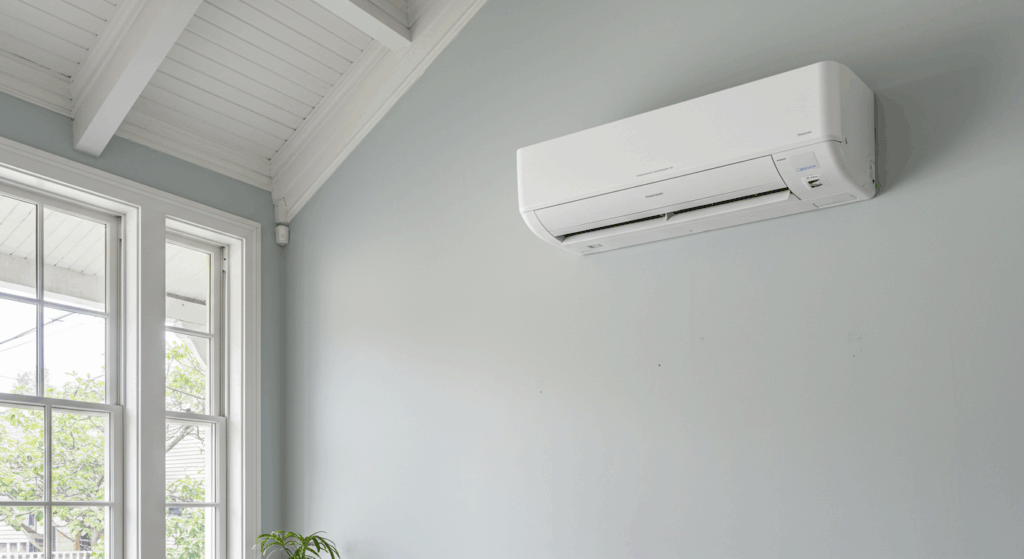
The Value of Professional Maintenance Plans
Here’s the bottom line: regular maintenance isn’t just about keeping your system running – it’s about keeping it running when you desperately need it to run.
Why Professional Maintenance Plans Make Sense:
Scheduled care before problems develop – We catch small issues when they’re cheap to fix, not when they’re expensive emergencies on the hottest day of the year.
Priority service when storms hit – Maintenance customers get bumped to the front of the line when everyone else is calling for emergency service.
Real cost savings – Maintenance customers typically spend 40-60% less on repairs. Clean, properly adjusted systems also run 10-25% more efficiently.
Extended equipment life – Professional care typically adds 5-7 years to your system’s lifespan. That’s serious money when replacement systems cost $8,000-15,000.
The Peace of Mind Factor:
- No more wondering if your system will make it through the next heat wave
- Safety checks for electrical, gas, and carbon monoxide concerns
- Technicians who know your specific system and its history
- Seasonal preparation that matches New Orleans’ unique climate demands
Our maintenance service agreements include bi-annual visits timed for our climate – spring prep for summer hell and fall recovery from hurricane season.
What You Get:
- Emergency service discounts
- Filter replacement reminders
- Expert advice on upgrades and improvements
- Detailed system documentation for warranty protection
Energy efficiency improvements from clean, properly adjusted systems can reduce monthly utility bills by 10-25%. According to the U.S. Department of Energy, proper maintenance is the most important factor in ensuring efficient operation and extending equipment life.
Professional maintenance plans represent an investment in your comfort, safety, and financial well-being. The comprehensive care they provide typically pays for itself through reduced repair costs, lower energy bills, and extended equipment life.
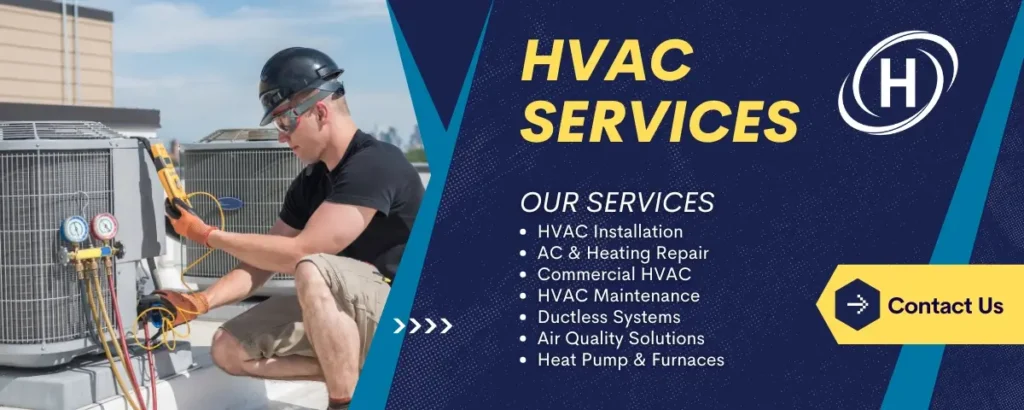
Schedule Your Maintenance Service
Don’t wait until problems develop to give your HVAC system the professional attention it needs. Proactive maintenance prevents the frustrating and expensive situation of losing heating or cooling when your family needs it most.
Regular maintenance is essential in New Orleans because our demanding climate puts more stress on HVAC systems than most other locations experience. The combination of extended cooling seasons, extreme humidity, and hurricane season impacts requires professional attention to ensure reliable operation.
Spring scheduling provides the best value by preparing your system for peak summer demand when emergency service calls are most expensive and appointment availability is most limited. Systems that receive pre-season maintenance experience significantly fewer breakdowns during peak usage periods.
Professional expertise makes the difference between basic system operation and optimal performance. Our technicians understand New Orleans climate challenges and have the tools and training to identify and resolve problems before they cause discomfort or expensive damage.
Convenient scheduling options accommodate your busy schedule with flexible appointment times and maintenance plan options that provide ongoing care without the hassle of remembering to schedule individual service calls.
Transparent pricing means you know exactly what to expect with upfront cost estimates and no surprise charges. Professional maintenance is an investment in your comfort and system reliability that typically pays for itself through reduced repair costs and energy savings.
Ready to ensure your HVAC system provides reliable comfort year-round? Call Hagerman Services at (504) 314-1486 to schedule your maintenance service or learn more about our comprehensive maintenance plans designed specifically for New Orleans homeowners.
We understand that when New Orleans families need HVAC service, they need it fast and done right the first time.Contact us today to experience professional maintenance service that keeps your family comfortable regardless of what our unique climate brings.
Frequently Asked Questions
Q: How often should HVAC systems be serviced in New Orleans?
A: New Orleans HVAC systems should receive professional maintenance at least twice yearly—spring preparation before summer heat and fall inspection after hurricane season. Monthly filter changes and regular homeowner inspections help maintain optimal performance between professional visits in our demanding climate.
Q: What does HVAC maintenance cost in New Orleans?
A: Professional HVAC maintenance typically costs $150-250 per visit for comprehensive service, with annual maintenance plans often providing better value at $200-400 per year for bi-annual service. The cost is typically recovered through reduced repair costs and energy savings within the first year.
Q: Can I perform HVAC maintenance myself?
A: Homeowners can safely handle filter changes, outdoor unit cleaning, and basic thermostat maintenance. However, professional maintenance includes refrigerant system checks, electrical diagnostics, and internal component cleaning that requires specialized training and equipment for safety and effectiveness.
Q: Why is maintenance more important in New Orleans than other cities?
A: New Orleans’ extended cooling season (March-November), extreme humidity, hurricane impacts, and dusty urban environment create conditions that accelerate system wear and increase maintenance needs compared to milder climates. Regular maintenance prevents problems that are common in our unique environment.
Q: What happens if I skip regular maintenance?
A: Neglected systems typically experience 3-5 times more emergency breakdowns, 20-40% higher energy costs, and 5-7 years shorter equipment life. In New Orleans’ demanding climate, maintenance isn’t optional—it’s essential for reliable operation when you need your system most.
Q: How do I choose a reliable HVAC maintenance company?
A: Look for licensed, local companies with experience in New Orleans climate challenges, transparent pricing, and comprehensive maintenance plans. Ask about their emergency response capabilities, technician training, and whether they provide detailed service documentation for warranty protection.
